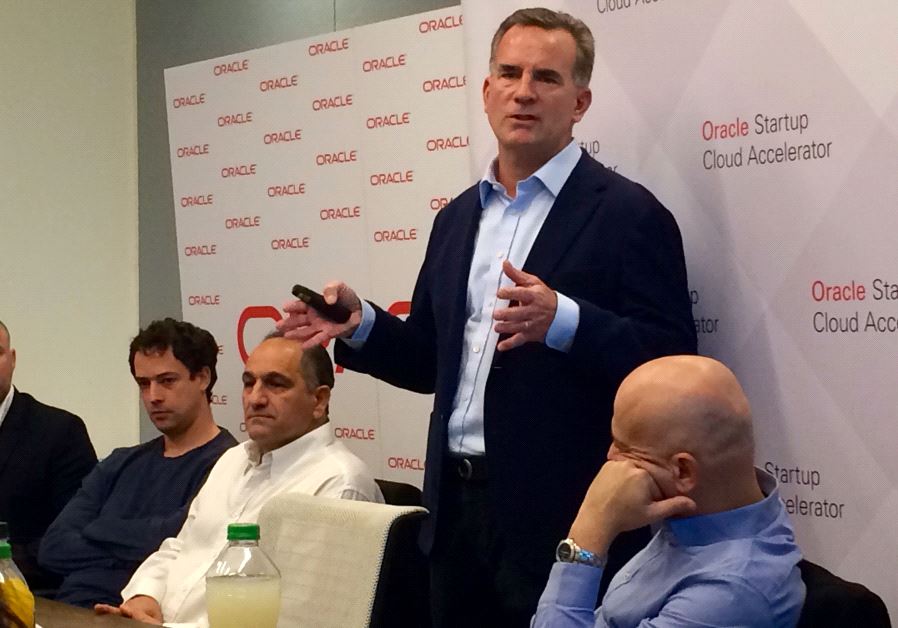Oracle launches Startup Cloud Accelerator in Israel
Five Israeli startups will be selected in cohorts twice a year, for six-month immersive programs.
 Reggie Bradford, senior vice president of Oracle, announcing Startup Cloud Accelerator in Petah Tikvah on Jan. 16, 2017(photo credit: SHARON UDASIN)Updated:
Reggie Bradford, senior vice president of Oracle, announcing Startup Cloud Accelerator in Petah Tikvah on Jan. 16, 2017(photo credit: SHARON UDASIN)Updated: